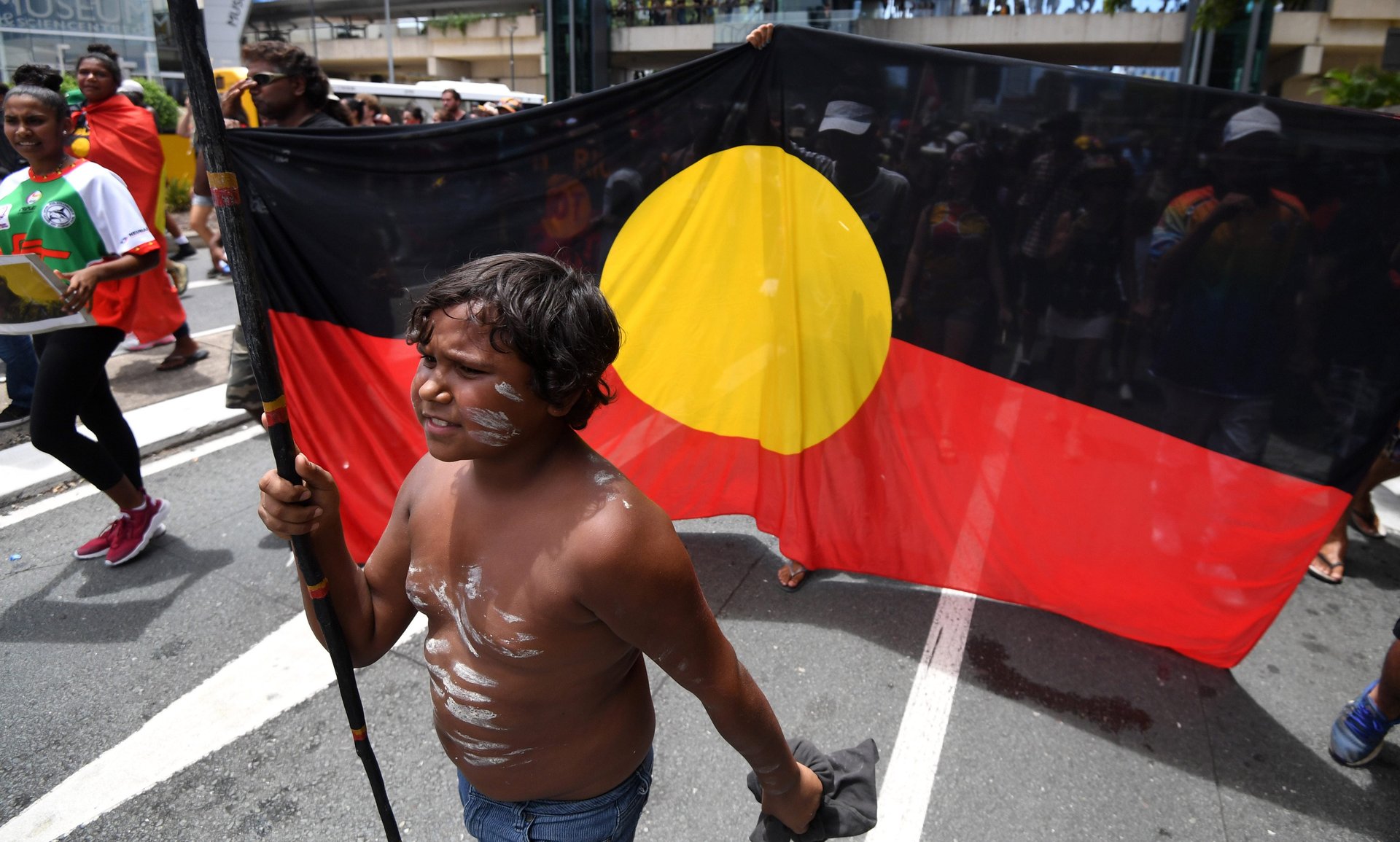Australians are showing solidarity with indigenous people on Australia Day by calling it #InvasionDay
Jan. 26 marks the day that the British “discovered” Australia in 1788, and is celebrated each year as Australia Day. Much like the controversy over the meaning of Columbus Day in the US, many are now calling for Australia to recognize that the “founding” of Australia meant the colonization and continued subjugation of its indigenous people.


Jan. 26 marks the day that the British “discovered” Australia in 1788, and is celebrated each year as Australia Day. Much like the controversy over the meaning of Columbus Day in the US, many are now calling for Australia to recognize that the “founding” of Australia meant the colonization and continued subjugation of its indigenous people.
Away from the barbecues and beaches, thousands in cities across Australia took part in what they called “Invasion Day” protests, with many calling for the date of the holiday to be changed. Clashes broke out in Sydney between protesters and police after a man set fire to the Australian flag, according to media reports.
Australia’s deputy prime minister Barnaby Joyce said that those protesting against the holiday should “crawl under a rock” and that the debate over it is “political correctness gone mad.” One senator described those calling for the holiday’s date to be changed as ”left-wing activists and latte-sipping apologists.” Prime minister Malcolm Turnbull urged Australians to use the holiday to celebrate the country’s diversity, rejecting the need to change the date.
The City of Fremantle in Western Australia canceled celebrations and will hold an alternative day of commemoration on Jan. 28. Far-right groups have called the decision an “act of betrayal against Australia,” and an aboriginal elder said that opposition to Australia Day was backward-looking and causing divisions.
The debate over Australia’s history flared up last year after the University of New South Wales issued a new “Indigenous terminology guide.” It suggested among things using the word “invasion” rather than “settlement” to describe James Cook’s landing in Australia. Critics said the university was “rewriting” and “whitewashing” Australian history.
Indigenous people currently make up about 3% of Australia’s population, which stands at 23 million. Like native populations in the US, they are significantly underprivileged compared to the majority white population and grossly underrepresented in mainstream media and politics. Indigenous communities suffer from violence, poverty, and high alcohol and drug addiction rates. Last year, an investigation by Australia’s ABC television network found that teenage boys, many of them aboriginals, were being maltreated in a detention center in the northern city of Darwin, including with solitary detention and tear gas.
The country elected its first aboriginal to the House of Representatives, Ken Wyatt, in 2010. Wyatt this month became the first aboriginal to be appointed to a federal cabinet position, as the Minister for Aged Care and Indigenous Health.